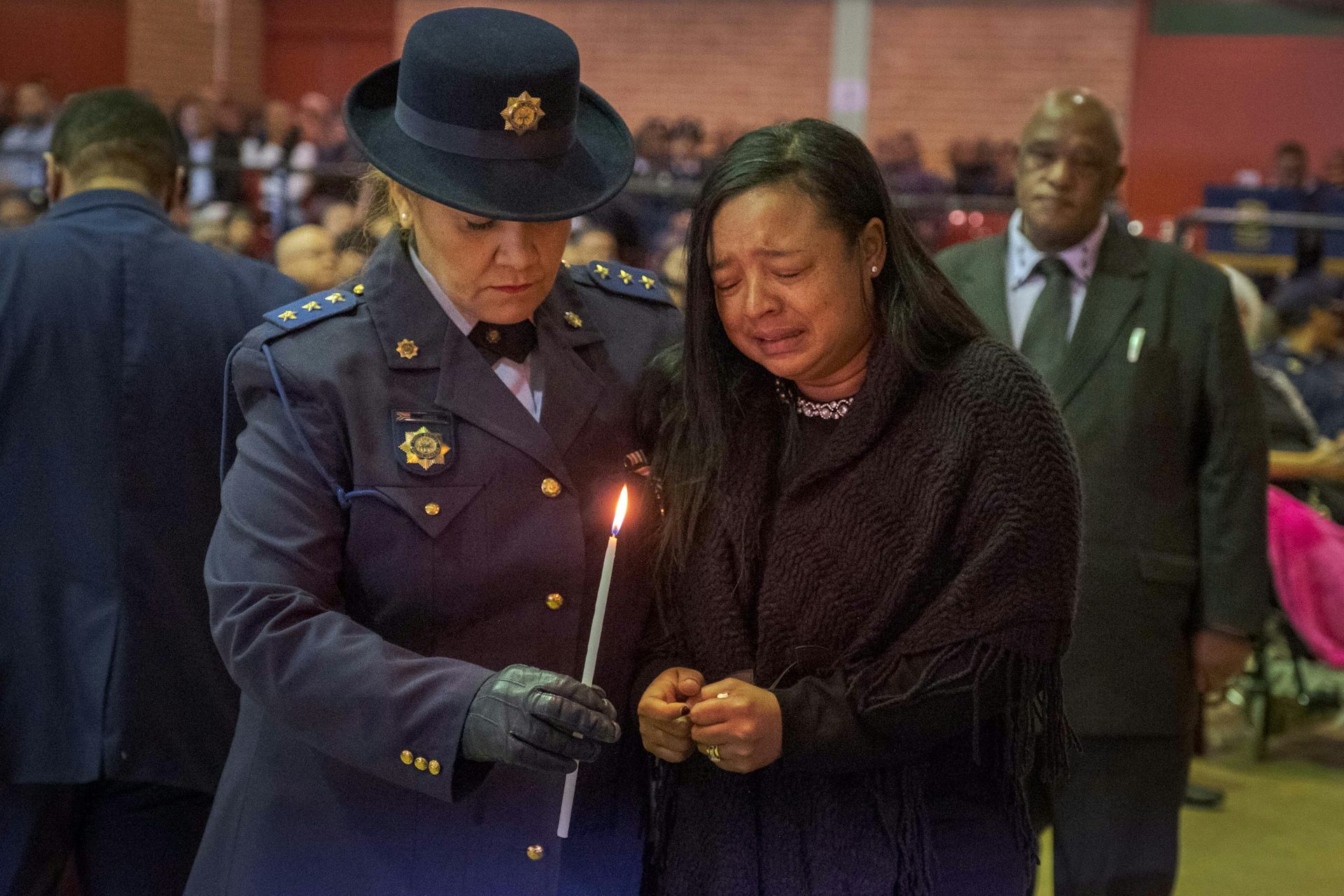
Following the latest spate of murders on the notorious Cape Flats in the Cape Town, the South African government has decided to send in the army.
The move has been welcomed by many who want to see an end to the rampant violence, crime and gangsterism in the province. Cape Town is ranked among the most violent cities in the world.
But, the use of the military to perform law and order functions raises several problems, many of which have long-term implications. The biggest problem is that armies are not trained for law enforcement. They’re trained for warfare and to use maximum force.
This is very different from the law and order duties of the police. The principle of minimum force is alien to a soldier. As the chief of South African National Defence Force General Solly Shoke, recently stated, the army is trained to “skiet and donner” (“shoot and beat up”), not for crime prevention.
The South African government appears to have had little choice but to use the military as the country’s police have been unable to protect citizens against violent crime. A staggering 43 people were killed in Cape Town this past weekend alone.
Deploying soldiers may be effective in suppressing violence. Nevertheless, studies show that using the military in an internal role can exacerbate conflict, rather than resolve it.
Soldiers are trained to kill
Military training and culture instils in soldiers a particular disposition which shapes and guides their actions and behaviour. Aggressiveness and an emotional distancing from the “enemy” enables soldiers to deal with life-or death situations and perform acts that are otherwise considered abhorrent in civilian society.
Nor can the military identity of a soldier – who carries a machine gun rather than a pistol – be switched off by merely placing them in policing roles, without some degree of re-socialisation and training. The delay in the deployment of the military, announced by Police Minister Bheki Cele last Thursday, relates to this.
The soldiers need to receive proper training on police rules and conduct before they can be deployed. Without this they wouldn’t know how to react when confronted with heavily armed gang members.
The soldiers will be under the command of the police in the crime fighting operation. But differences in organisational cultures, procedure and equipment, could prove to be highly problematic. In addition, unlike the police, the military is typically unfamiliar with the terrain, street conditions, public attitudes and reactions of civilians.
Whether or not the deployment succeeds will depend on the conduct of the military, their methods of coercion and whether they act in an impartial and professional manner. The rules of engagement need to be very clear to ensure that they do not use excessive force, or violate the human rights of citizens.
Parameters must be set to ensure that the use of force is proportional to the threat posed to contain a situation. Force should only be used when all other means have failed, and where there is evidence of hostile intent. And, such use of force should be of limited duration, and only employed as a protective measure.
Threat of militarisation
The last thing the country can afford is a return to what happened during the apartheid era, when citizens were at the mercy of the state security forces, with hardly any civilian oversight and accountability.
There are also wider social ramifications. On the one hand, failure to intervene by the state may result in citizens forming their own armed groups that offer them security and protection. Any increase in vigilantism has the potential to further escalate violence, as citizens come to take the law into their own hands.
On the other hand, further calls to deploy the military throughout the country could foster a culture of militarism. This, in turn, could be linked to broader social processes of militarisation within society at the economic, political and ideological levels.
On the economic level, militarisation is associated with the increased spending on defence. At the political level, the involvement of the army in law and order duties can result in them being afforded extra-ordinary powers to institute violence and repression .
Ideologically, this can perpetuate an already established culture of violence as an effective means of achieving objectives.
Where there is a culture of resorting to the use of force to restore peace and security, it undermines the need to seek other alternatives. Nor does it address the underlying causes of conflict, which ultimately results in the military being deployed for prolonged periods, or even permanently, to prevent the return to violence.
A constabulary force
There are no simple solutions. But perhaps it is time to consider whether South Africa needs a constabulary force, or gendarmerie. These are hybrid police-military forces more suited for the maintenance of public order functions, rather than the military.
Countries that have established constabularies, or gendarme, include Jamaica, Spain (Guardia Civil), France (Gendarmerie) and Italy (Carabinieri). Countries like Canada’s Royal Canadian Mounted Police and the US’s National Guard have been set up on a similar basis.
There has been an increase in the use of these forces due to the reluctance to deploy the military to combat internal threats. They are widely used in internal security and peacekeeping operations due to their ability to deal with threats posed by armed groups and other forms of violence that the police are unable to deal with.
Lindy Heinecken is the author of a forthcoming book, “South Africa’s post-apartheid military: Lost in Transition and Transformation”, to be published shortly by UCT/Juta and Springer Press.![]()
Lindy Heinecken, Chair of the Department of Sociology and Social Anthropology, Stellenbosch University
This article is republished from The Conversation under a Creative Commons license.

